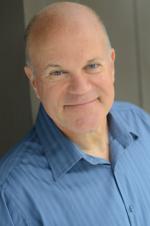ANo. Both the film and the miniseries are inspired by the Stephen King novel, but the mini-series version does not draw any inspiration from Kubrick's film. The creation of the miniseries is attributed to King's dissatisfaction with the filmic adaptation of the story.
AIn Jack's interview at the start of the film, Stuart Ullman tells him the story of a former caretaker who got cabin fever, butchered his family with an axe and then shot himself. The man's name was Charles Grady. Later on in the film, Jack meets a butler also called Grady and Jack explains to him that he knows all about the man's murder of his family, as he saw the pictures in the paper and he recognizes him. The problem is that the butler's name is Delbert Grady, not Charles Grady. Some viewers see this as a continuity error while others conclude that it could not possibly exist by accident and, therefore, must have meaning. On one hand, The Kubrick FAQ argues that the name change carries great significance; The duality of Delbert/Charles Grady deliberately mirrors Jack Torrance being both the husband of Wendy/father of Danny and the mysterious man in the July 4th photo. It is to say he is two people: the man with choice in a perilous situation and the man who has 'always' been at the Overlook. It's a mistake to see the final photo as evidence that the events of the film are predetermined: Jack has any number of moments where he can act other than the way he does, and that his (poor) choices are fueled by weakness and fear perhaps merely speaks all the more to the questions about the personal and the political that The Shining brings up. In the same way Charles had a chance - once more, perhaps - to not take on Delbert's legacy, so Jack may have had a chance to escape his role as 'caretaker' to the interests of the powerful. It's the tragic course of this story that he chooses not to (quoted here).
The argument is that Delbert Grady was the butler in the 1920s (as he says himself, he has "always" been at the Overlook) and Charles Grady was the caretaker in the 1970s (a man presented with a "perilous situation," just as Jack would be years later), and rather than being two completely different people (or indeed the same person with two names), they are two 'manifestations' of a similar entity; the part permanently at the hotel (Delbert) and the part which is given the choice of whether to join the legacy of the hotel's murderous past (Charles), just as the man in the photo is not the same man who Stuart Ullman hires to be the hotel's caretaker, but nor is he someone entirely different. Jack in the photo has 'always' been at the Overlook, Jack the caretaker chooses to become part of the hotel (if one follows the logic of this argument, the implication is that the person in the July 4th photo would not in fact be called Jack).The problem with this argument is that the film itself provides no solid evidence for such a claim - any arguments that the change in name has any significance whatsoever remain wholly speculative. It also fails to address the fact that while Jack appears to learn of the story for the first time from Mr. Ullman, he later tells Grady that he learned of the incident via the newspaper (this may reference a scene from the book, wherein Jack spends an afternoon in the hotel basement reading a collection of clippings detailing the Overlook's history; that theory is supported by the fact that a scrapbook of clippings is indeed visible on Jack's writing desk in one scene, but despite its presence he's never shown reading or otherwise acknowledging it in any cut of the film). The viewer must additionally rationalize why Jack reacts to the name Delbert Grady and assumes this man to be the man initially named to him as Charles (an assumption Grady himself eventually confirms). It's perhaps significant to note that in the novel, the character is always known as Delbert. On the other hand, the film's assistant editor Gordon Stainforth has commented on this issue, attempting to steer a course between the continuity error explanation on one side and the hidden meaning explanation on the other; I don't think we'll ever quite unravel this. Was his full name Charles Delbert Grady? Perhaps Charles was a sort of nickname? Perhaps Ullman got the name wrong? But I also think that Stanley did NOT want the whole story to fit together too neatly, so [it is] absolutely correct, I think, to say that 'the sum of what we learn refuses to add up neatly' (quoted here). So, is the name change a continuity error or a hint at a deeper meaning? Stainforth is probably nearest the truth when he says "I don't think we'll ever quite unravel this." There will always be those who will argue there is no way it could be as simple as a continuity error, and there will always be those who will argue that to explain such an obvious continuity error as intrinsically meaningful is absurd. As such, it is ultimately left up to each individual viewer to make up their own mind and reach their own conclusions as regards the ambiguity. The two names for both characters is a transformation/submission into evil. Delbert, as he is first introduced, is a nice polite butler but as the scene and movie go on we can get a sense of his transformation into Charles. The same may be suggested for Jack. While many can argue that Johnny is another name for Jack, as Bill to William for example. It has been said that the line was improved by Nicholson. But as Jack is "hacking" into the bathroom with the axe and yells the famous line "Here's Johnny!" Jack has completed his transformation into evil and will remain forever in the hotel as Delbert/Charles.














